SUMMARY
This is AI generated summarization, which may have errors. For context, always refer to the full article.
![[OPINION] Sa ngalan ng kaunlaran: Development for whom?](https://www.rappler.com/tachyon/2020/11/lumad-landgrabbing_640.jpg)
“It is not difference that divides us. It is our judgments about each other that do.” – Meg Wheatley
Over the past decades, the number of people who are annually displaced by land grabs has multiplied. One of the most affected sectors of displacement due to land grabbing is the indigenous people. In the Philippines, IPs have been subject to historical discrimination and marginalization from political processes and economic benefits. They have been relentlessly overlooked, exploited, oppressed, and displaced. Owing to the loss of ancestral lands, they have not only lost their homes but their identity, culture, and tradition as well.
As we continue to move forward, we are also continuing to take advantage of our fellow brothers and sisters with the notion that development leads to progress, which will supposedly “benefit” the whole country. But how far are we willing to go in the name of development?
When I started studying in Ateneo de Manila University, I had high hopes coupled with idealistic views, just as any college freshman would have. I started joining organizations, meeting new people, being more politically active, and participating in projects for a cause.
During my sophomore year, I took a subject that changed the way I viewed the greater reality outside of my privileged bubble, and the flawed system that is being perpetuated by the equally flawed leaders who run it. I remember reflecting on how I could better advocate and take action for a more inclusive society in the Philippines with regard to the discrimination and displacement of our brothers and sisters, the indigenous people, whom we have silenced and disregarded for years, ultimately demeaning their existence and excluding them from having a voice in society.
What bothered me the most was how normally these atrocities and injustices took place, and how laws could easily be bent in order for those who hold and exercise power to continue and exploit, displace, and bully the already marginalized and oppressed. I also realized that just because we are perfectly fine with a broken system doesn’t mean it’s right.
Not so long ago, the indigenous people of Casiguran, Aurora marched across the country to protest a controversial land development created by a powerful political dynasty. They were protesting against a government project called the Aurora Pacific Economic Zone (APECO), which promised to bring economic progress to the people in Casiguran. They were forced to live in government subsidized housing which was too expensive for them to maintain. In addition, the construction of resorts, airports, and factories were already starting, destroying their rice plantations, affecting their livelihood, and displacing around 3,000 families.
We must ask: for whom, then, is this “development?”
On a similar note, due to the growing population in Metro Manila, the Bases Conversion and Development Authority (BCDA) began the construction of the initial phases of the New Clark City (NCC), a 9,450-hectare smart city, in January 2018 in the hills of Capas town in Tarlac province. This multi-billion project was one of the flagship infrastructure projects of President Rodrigo Duterte’s Build, Build, Build program. As enticing as it may sound, the construction of this project actually threatens to displace around 65,000 people from 12 villages, including at least 18,000 indigenous people who belong to the Aeta tribe.
Did these government officials take into consideration the repercussions of pushing through with this project? Did the engineers who were supposed to design the buildings for this project think of all the families they would displace just to decongest overpopulated Manila? How could they sleep comfortably at night knowing that, because of them, families will be stripped of their own lands with nowhere to go?
Such corruption and injustice is inexcusable. I feel deeply for the struggles indigenous people experience — losing their homes in exchange for subjective definitions of development by people who think only of what they can gain at the expense of others. Furthermore, I was and still am aghast by the negligence of the government to do their part in ensuring that no one gets left behind and excluded from the progress and development of the country, assuming that they have already taken into account all voices and sectors.
Some would argue that growth and development are necessary in today’s modern world. What we fail to understand is the distinction between the two. Growth in this sense pertains to economic growth, which is the increase in per capita income. Development, however, is not as well-defined as growth. The modernization debate in the social sciences has partly been about the normative significance of the trajectory of a country that might go through progressive changes. Is it a good thing and should countries aim to go through this trajectory?
I would like to redefine the word “development.” This discipline should be viewed as multidisciplinary across all professions and its main goal should be inclusivity above all else. It should, primarily, be a reflection of the community’s real needs and values. When we talk about growth and development, we should also take into account the context this has in relation to a greater narrative, and for whom this definition of development is pertaining to.
I would like to end by quoting Meg Wheatley, as she said that without reflection, we go blindly on our way, creating more unintended consequences and failing to achieve anything useful. With that, we have to take into account that our idea of progress and development may not be synonymous with what these displaced indigenous people have. We should always strive to go beyond our own understanding and try to put ourselves in the shoes of others. We should make it a point to do away with our privilege and question the system that has been allowing these injustices to happen in the first place.
At the end of the day, it is important to remember that the role of the government, first and foremost, is to serve its people and ensure that everyone is being represented, heard, and treated fairly. – Rappler.com
Janelle Carmela Llavore is a junior at Ateneo de Manila University and is currently taking up a minor in Development Management. She advocates for a more inclusive society and does community engagement.
Add a comment
How does this make you feel?
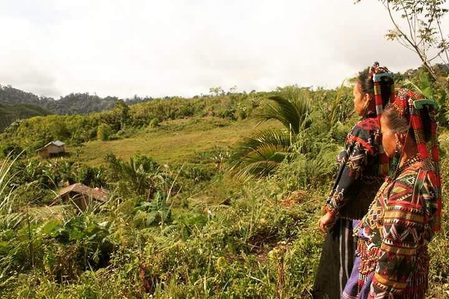
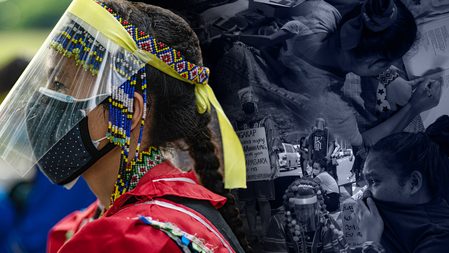
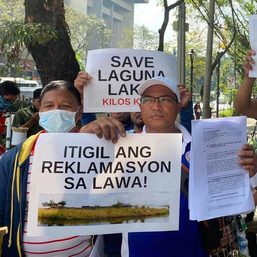
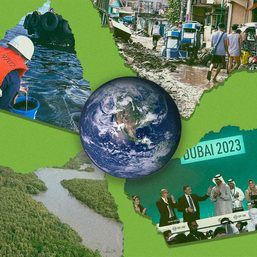
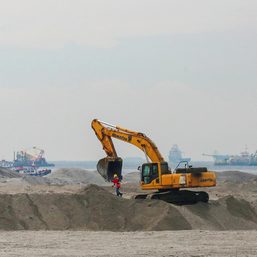
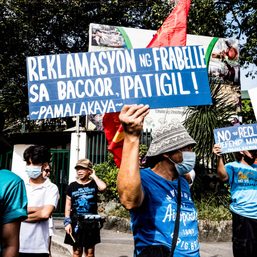
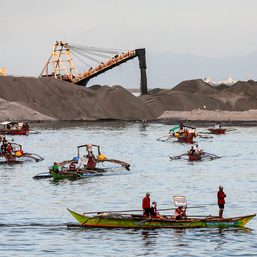
There are no comments yet. Add your comment to start the conversation.